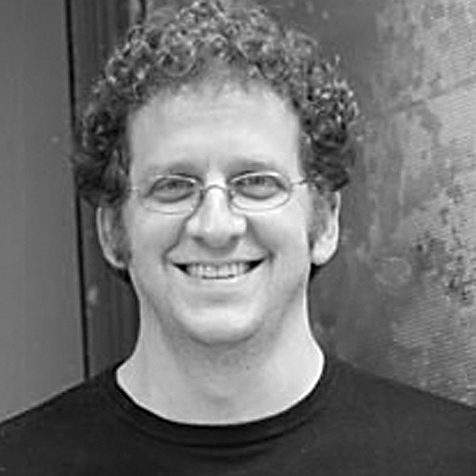I had one night in Bangkok, and I was definitely feeling humbled by the traffic. My bus idled, stuck in one of this Thai capitol’s infamous daily snarls. I had little idea where in the city I was or how far there was to go, only a destination. And, most agonizing of all, I had less than an hour before Shabbat.
Shabbat in Bangkok? What business does a partisan of the 613 mitzvot have in a city of 1,000 temptations?
For the most part, jewelry. Though its first Jewish settlers were refugees from the Soviet Union in the 1920s and Europe in the 1930s, both groups mostly left after the war, according to the World Jewish Congress. During the 1950s and ’60s, a mixture of Sephardim from Syria and Lebanon and Ashkenazim, both groups drawn by the city’s bustling jewel trade, put down roots. Most of them pray and meet at the Even Chen [Hebrew for “precious stone”] Synagogue in the Jewel District.
But I was more interested in the other major Jewish group currently routing through Bangkok: backpackers. An estimated 15,000 Israelis come through here every year. Some, if not all, make their way to Khao San Road. Chabad has a house there, offering Friday night services and dinner. I was looking forward to both, if I ever got there.
Fortunately, my stop came soon. And immediately, I knew I had reached the fabled backpackers’ paradise. Khao San Road and its neighboring streets and alleys are like a college town without a college. Internet cafes jostle for space with international calling booths, five types of foot massage, cheap laundry drop-offs, and pushcarts bearing pad thai. Signs cater to every nonprurient desire of a college-age Western kid.
A lot of them also cater to the post-Israeli-Army kid. Many are in Hebrew, advertising everything from “kosher” falafel to travel packages to cheap phone calls to Israel.
My Lonely Planet guide book was comprehensive enough to list Chabad House for its kosher restaurant, but I wanted more than dinner. I wanted a place to stay where I could meet up with Israelis hitting Bangkok on their ritual post-Army world walkabout. Another look, though, revealed that the guidebook actually mentioned the Panang guest house as being “frequented by Israelis.” I made a beeline there, only to discover it was all booked up.
Drenched in sweat, I trekked over to Panang’s franchise operation, Panang II, only to find it was no longer a restaurant-cum-guest house (a typical arrangement here), but now just a restaurant. A few more inquiries, a few more minutes toward the swiftly approaching sunset, and I finally found a vacancy at the Marco Polo, a hostel with tiny, no-frills rooms.
After a quick shower, I hurried into the Chabad House building I’d passed repeatedly in my quest for lodgings. But there was neither signage nor sign of dinner or services. I went up to a local worker there and tried asking in my pidgin Thai about dinner. It didn’t work. I tried English. No luck. Finally, I said the word “Shabbat,” and she responded, “Malon Viengtai! Malon Viengtai!” [Hebrew for The Viengtai Hotel]. Apparently, she was prepared only for Hebrew inquiries.
The Viengtai was easy to find, but the specific location of Shabbat still eluded me. Nothing Jewish in Bangkok is easy to find. I’d learned that earlier while looking for the Chabad kosher shop and bakery that mainly services its restaurants and school. The Web site information had seemed to put the bakery, as well as the Jewish Center, at an address that numerically didn’t exist. Finally, a phone call brought out an employee to guide us into the alleys and sub-alleys where the places nestled.
Under the halachic supervision of Chabad Rabbi Yosef Kantor and the culinary supervision of his wife, former Angeleno Nechama Kantor, the bakery/shop contains an eclectic smattering of Jewish essentials (wine, challah), luxuries (liqueur, fresh-baked rugelach) and local Asian exotica (rice noodles, coconut milk).
Finally, I located the upstairs ballroom set aside for the night’s festivities. Gathered there already were some 60 young Israelis, wearing everything from tie-dyed T-shirts to cut-off jeans to nose-piercings and hair wraps.
No sooner had I sat down, though, than the Chabad rabbis and leaders, who were definitely dressed for shul, announced Minchah services. They announced it only in Hebrew; in fact, the night’s proceedings all took place in Hebrew. I guess the assumption was that everyone here was Israeli.
Before dinner was over, the rabbis handed out song booklets, and soon the room roared with tunes, some familiar, some unfamiliar. Then a rabbi gave a d’var Torah, and it was here, quite frankly, that my Hebrew reached its limits.
Before the evening was over, I had met a handful of young Israelis, as I’d hoped. Some had been traveling for a month, some for a year. All had plans for continuing on in Asia and beyond. All thought it was self-evident, when I asked, that Shabbat at Chabad was what you did on a Friday night in Bangkok, even if that wasn’t the only thing you did with the evening. Their day of R&R was just beginning, even as mine was drawing to a close.























 More news and opinions than at a Shabbat dinner, right in your inbox.
More news and opinions than at a Shabbat dinner, right in your inbox.